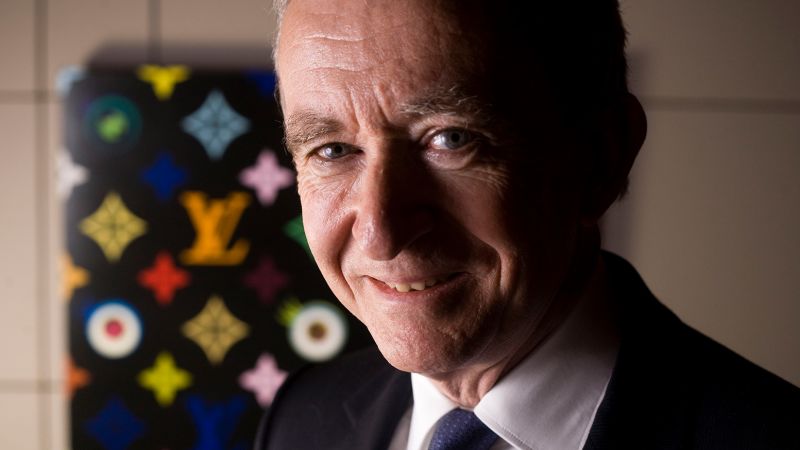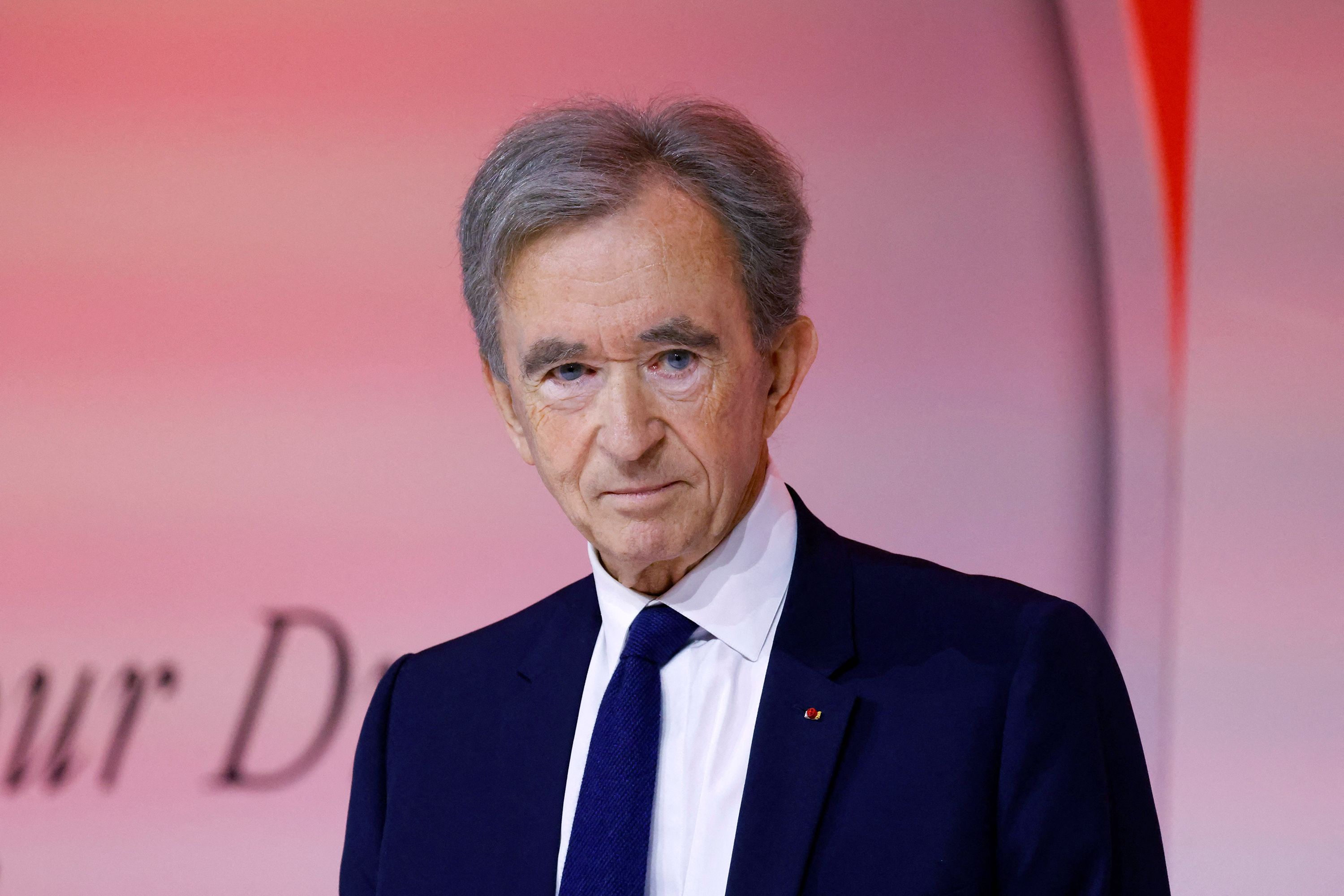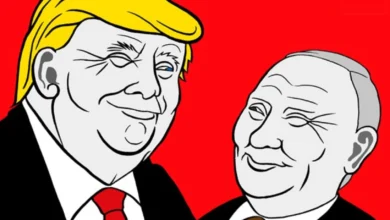French Billionaire Bernard Arnault Faces Scrutiny in Money Laundering Investigation Tied to Russian Oligarch

French Billionaire Bernard Arnault Faces Scrutiny in Money Laundering Investigation Tied to Russian Oligarch
In a developing financial investigation that has sent shockwaves through the upper echelons of European wealth, French billionaire Bernard Arnault finds himself entangled in a preliminary investigation into transactions suspected of constituting money laundering offenses. This inquiry, confirmed by the Paris Public Prosecutor’s Office, has also ensnared Russian oligarch Nikolai Sarkisov, shedding light on a labyrinthine web of real estate dealings that has raised eyebrows across the continent.
It is important to underscore that, at this juncture, Bernard Arnault is not a suspect and has not been accused of any wrongdoing. Instead, his connection to this financial maelstrom arises from an investigation that initially focused on Sarkisov’s operations within France.
The genesis of this complex saga can be traced back to 2022 when a preliminary investigation was initiated concerning Nikolai Sarkisov’s financial activities in France. As new evidence emerged, French authorities began scrutinizing a memo provided by the French economy ministry’s financial intelligence watchdog, known as Tracfin. This memo pertained to real estate transactions involving both Arnault and Sarkisov and was delivered to the Public Prosecutor’s Office in Lyon in December 2022. Subsequently, the case was expeditiously transferred to the Paris prosecutor’s office, which enlisted the assistance of the national-level anti-money-laundering watchdog to delve deeper into the matter.
According to details revealed in the memo, companies linked to Nikolai Sarkisov orchestrated the acquisition of fourteen properties in the opulent Alpine resort of Courchevel during the autumn of 2018. These transactions, with a combined value of 16 million euros (approximately $17 million), were executed through an intricate network of companies spanning across France, Luxembourg, and Cyprus, as per Le Monde, the French publication that broke the story.

The revelations surrounding these real estate dealings have sent shockwaves through France’s high society and drawn the attention of financial experts and legal authorities alike. While the investigation is still in its preliminary stages, it raises critical questions about the nature of these transactions, the individuals involved, and the potential implications for France’s financial sector.
The Intricate Real Estate Web
At the heart of this investigation are the intricate real estate transactions orchestrated by companies connected to Nikolai Sarkisov. The acquisitions, which took place in Courchevel, a renowned winter playground for the affluent, raise suspicions due to the complexity of the corporate entities involved.
According to Le Monde’s reporting, Sarkisov’s companies embarked on this property-buying spree, acquiring a significant portfolio of luxurious Alpine residences. What sets this apart is the convoluted nature of the ownership structure. Companies operating in multiple jurisdictions, including France, Luxembourg, and Cyprus, were strategically employed to facilitate these purchases. This multi-layered approach, often utilized in complex financial transactions, can obscure the ultimate beneficiaries and the origins of the funds involved.
Such opacity in financial dealings can be a red flag for authorities, as it raises concerns about the potential misuse of corporate structures to facilitate money laundering. Money laundering typically involves concealing the origins of illegally obtained funds by passing them through a series of legitimate transactions or complex corporate networks. As a result, authorities must thoroughly examine the motivations and individuals behind these real estate acquisitions to ensure that they comply with the law.

Bernard Arnault’s Connection
While Bernard Arnault’s name has emerged in connection with this investigation, it is imperative to clarify his role. Arnault, a prominent figure in the global luxury industry, is the chairman and CEO of LVMH Moët Hennessy Louis Vuitton, the world’s leading luxury goods conglomerate.
At this stage, Arnault is neither a suspect nor has he been accused of any wrongdoing related to these real estate transactions. His connection to the investigation appears to be a byproduct of his business dealings or associations with individuals and entities involved in the broader inquiry. In situations like these, it is not uncommon for authorities to cast a wide net to ensure a comprehensive examination of all relevant parties.
The Role of Tracfin
Tracfin, the French economy ministry’s financial intelligence watchdog, plays a pivotal role in uncovering and combatting financial crimes, including money laundering. It operates as a specialized unit dedicated to collecting, analyzing, and disseminating information about suspicious financial activities. In this case, Tracfin’s memo, which triggered the investigation, underscores the agency’s vigilance in monitoring financial transactions for potential illicit activities.
The memo’s contents likely served as a catalyst for the expansion of the investigation from Sarkisov’s activities to encompass transactions involving Bernard Arnault. Tracfin’s contribution highlights the importance of such watchdog organizations in preserving the integrity of financial systems and safeguarding against financial crimes.
The Broader Implications
The ongoing investigation has raised broader questions about the effectiveness of financial regulations and corporate transparency in France and across the European Union. The complexity of the real estate transactions involving Sarkisov’s companies underscores the challenges faced by authorities in tracking and preventing potential money laundering schemes, particularly when international jurisdictions are involved.
Additionally, this case may prompt a reevaluation of regulations governing real estate transactions, especially those involving high-value properties. Stricter oversight and transparency requirements could be on the horizon, as governments seek to close potential loopholes that could be exploited for money laundering purposes.

Conclusion
As the preliminary investigation unfolds, it will undoubtedly continue to captivate the public’s attention and raise critical questions about the intersections of wealth, business, and the law. While Bernard Arnault’s involvement remains tangential, the complexity and potential implications of the real estate transactions at the heart of this inquiry serve as a stark reminder of the importance of vigilance in the world of high finance.
The ultimate goal of this investigation is to shed light on the intricate web of real estate dealings and financial structures that have come under scrutiny. As authorities delve deeper into the matter, they will strive to determine whether these transactions were conducted in accordance with the law or if they represent a nefarious underbelly of the financial world. In the end, the truth will emerge, and its implications will reverberate through the worlds of business, finance, and justice, potentially reshaping the landscape of financial regulation and transparency in France and beyond.




